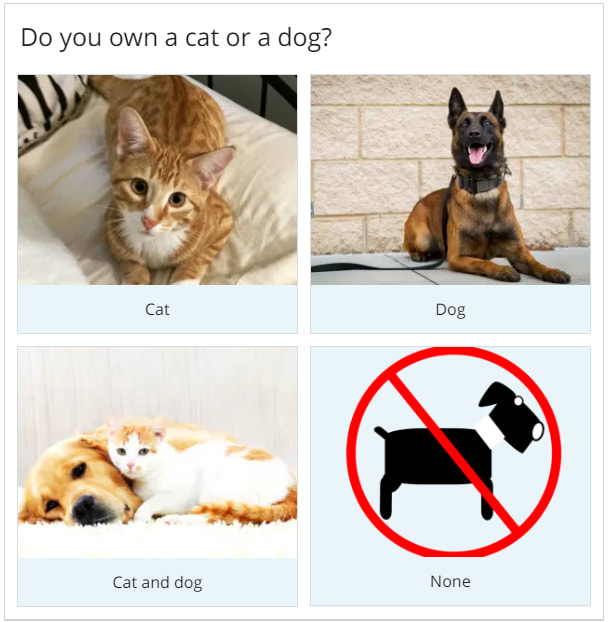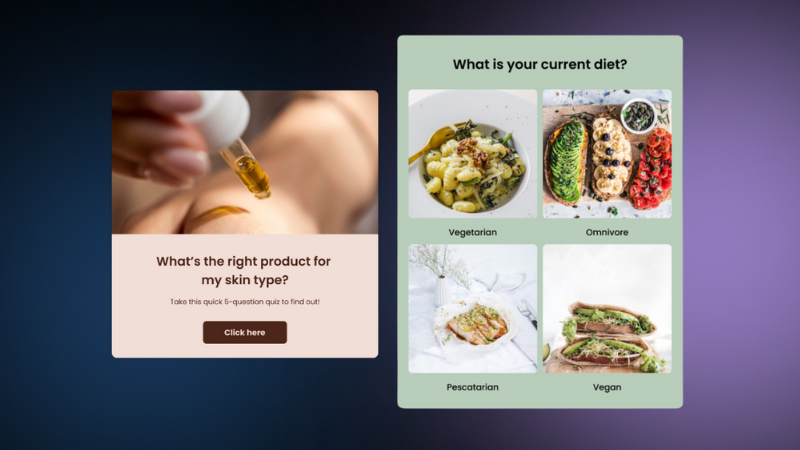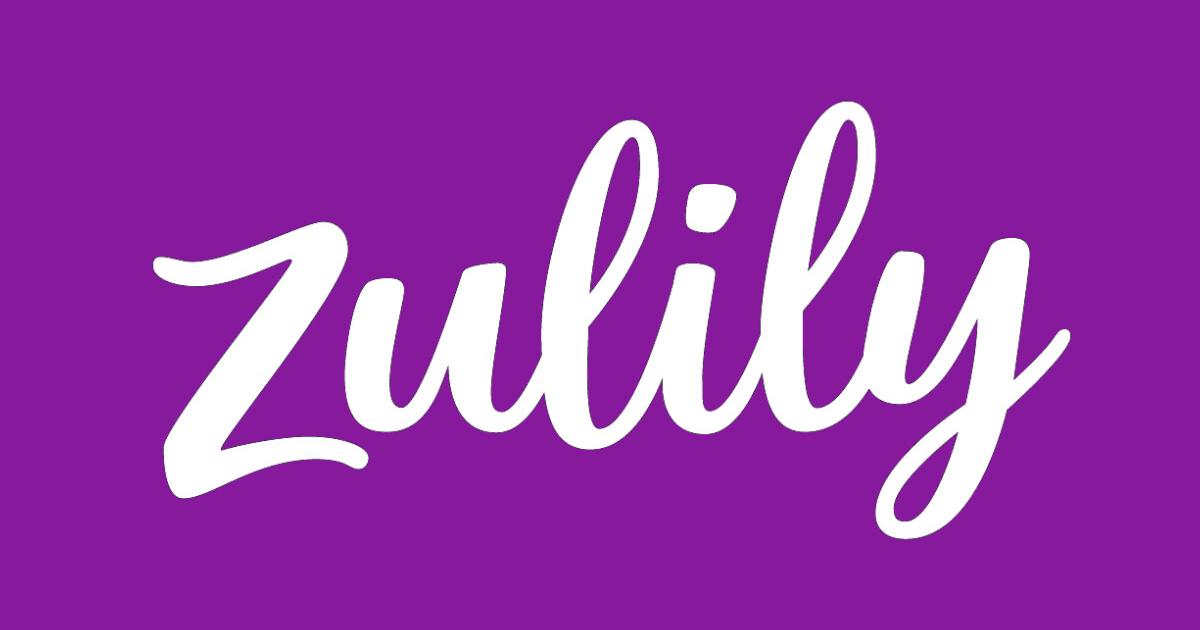What Is Skip Logic?
Skip logic, also known as branch logic or conditional logic is a feature that changes the question or page a respondent sees next based on the answer they chose for the current question. When you make a quiz or a survey, skip logic allows you to create a custom path that varies based on how the respondent answers your questions. You can set up the skip pattern based on the rules that you define.
How Skip Logic Makes Surveys and Quizzes Better for Readers
Skip logic improves your user experience because it prevents respondents from seeing questions that do not apply to them. This ensures your surveys or quizzes are tailored specifically to your respondents, which saves them time and makes sure you get quality data without confusing anyone with extra questions. Regardless of how you’re using the survey or quiz, skip logic speeds up the overall process while keeping it nice and smooth for your participants.
For example, a survey based on pets could ask:
1. Do you have a cat?
Yes/No
2. Do you have a dog?
Yes/No
If the participant indicates they do not have a cat, the conditional branching would stop the survey from showing any questions related to cat ownership. If the participant indicates that they do not have a dog, the survey would skip any questions related to dog ownership. In a case where the participant has both cats and dogs, all questions could be asked. They can be changed based on further logic throughout the rest of the survey. When a participant indicates they have neither cats nor dogs, the survey can either proceed with questions regarding other pets or disqualify the participant from continuing with the rest of the survey.

Skip Logic Works for All Kinds of Use Cases
Planning Events
Planning a PR event? An employee function? An industry conference? Skip logic can be helpful in helping you figure out how much of any particular thing you need. For instance, you can ask your event speakers whether or not they’ll need projectors and other equipment for their presentation, and then ask how many and for how long. Or, ask your employees if they plan on attending the function, and ask only those who are coming what their meal preferences are.
Launching Products
Want to know which one of your product ideas will be the bigger hit with your audience? Ask conditional questions to determine who would be most likely to purchase your new product, and then ask them to tell you more about what they think of your brand. There’s no point in getting data from people who aren’t likely to buy your product, and branch logic cuts the fat from your data and doesn’t waste the participant’s time.
Boosting Engagement
Want to get your audience more engaged with your content? Create a fun Facebook quiz or WhatsApp quiz related to your niche and develop questions that help you learn more about your audience. The more you know about them, the better you can create the kind of content they want.
Employee Feedback
People don’t quit bad jobs, they quit bad bosses. Your employees play a major role in your company’s success, so it makes sense to invest in them and do what you can to keep them happy. You can use skip logic on a survey to determine how satisfied your team members are, and find ways to make your work environment even better.
Benefits of Skip Logic
Tailor Questions to Respondents
When questions don’t apply to your participants, they won’t know how to answer them. If Jane doesn’t own a tablet, asking her to tell you about the last five apps she downloaded on her tablet and not her smartphone will be irrelevant to her. If she must answer to continue the survey, doing so will skew your data. Generally speaking, asking people irrelevant questions means they’ll get frustrated and quit the survey altogether, or just answer randomly. Keep respondents happy and data quality intact by preventing irrelevant questions from displaying to users.
Keep Things Short and Simple
The longer a survey is, the less likely someone is to go all the way through to completion. Unless you’ve got a high-quality incentive to get people to participate, the best thing you can do for your participation and completion rates is to focus on keeping your survey as short and simple as possible.
Fewer questions to answer means more thoughtful answers and higher completion rates. If you want to know more about satisfaction with transportation options in your area, consider this: Sarah only uses taxis. Tom only uses the bus. Rhonda uses a bike rental. Asking Sarah about her experience with taxis, and letting her skip the rest, makes the most sense for her. Allowing Tom to skip everything except for the questions related to the bus makes the most sense for him. Skipping everything but bike-related questions for Rhonda makes sense for her. In the end, you’ll get the data you need about their overall experience with the local transportation options, but you’ll make the whole thing quicker and smoother for each participant.
Eliminate Data that Offers No Value
Adding unnecessary questions to a survey interrupts the “conversation” between you and the participant. Any questions that aren’t applicable to the respondent are distractions. Think of it this way, if you were talking with a friend about e-cigarettes, and she said she didn’t smoke cigarettes so there was no reason for her to vape, you wouldn’t keep talking about e-cigarettes, would you? No, instead, you’d likely change the subject to something that’s more relevant to her. Being persistent about discussing a topic that’s not relevant to her would be awkward in face-to-face conversation, and it’s just as awkward in print.
Keeping your survey relevant to the participant from start to finish, even if it means disqualifying them after two questions, ensures you’re keeping the experience positive for the respondent. It also means you’re not filling your responses with irrelevant data that gets in the way of your ability to derive accurate insights.
No matter the nature of your quiz or survey, skip logic makes sense. You’ll keep the experience short and sweet for your respondents, get a higher response rate, end up with higher quality data for analysis and decision-making, and ultimately, save yourself a great deal of time and frustration compared to using the same generic format for all respondents.




